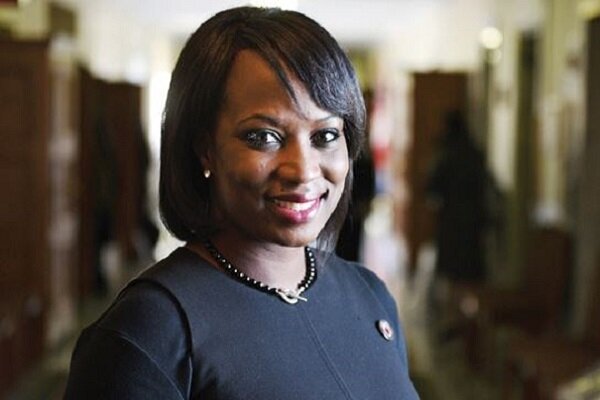George Floyd, an unarmed American black man died on May 25, 2020, after a police officer pressed his knee into his neck for several minutes even after he stopped moving and pleading for air.
His death by the US police has caused a ripple of protests throughout the US, turning the country into a battlefield between police and demonstrators. Rallies have turned violent in some US cities, where the police have fired tear gas and rubber bullets against the demonstrators.
US President Donald Trump threatened the use of force in dealing with protests against the death of George Floyd, referring to participants as “thugs” in a tweet that was later hidden by Twitter for "glorifying violence."
But the former President Barack Obama issued a statement on Floyd's killing via Twitter and pleaded for Americans to open their eyes to the ongoing racial injustice that plagues the country.
Growing unrest against police brutality across the country, Obama said to demonstrators that this moment is politically advantageous for protesters who are calling for widespread police reforms and large-scale institutional change.
Simultaneously with all the protests in the US, thousands of people of all colors, creeds, ages, and walks of life took to the streets across the world to show their anger over the racism and police brutality.
In an exclusive interview with Mehr News Agency, Celina R. Caesar-Chavannes, a Canadian politician and former Member of Parliament for the riding of Whitby in the House of Commons of Canada from 2015 to 2019, shared her views on the racial violence and police brutality in light of the brutal killing of George Floyd.

Following is the text of our interview with her:
Historically speaking, black people were brought to the US for slavery, and, as this has been against their will, these people have been involved in constant rebellion while the US security forces have been seeing them as a threat. Why the US policies have failed to change this perspective since the era of slavery has long passed as we are still seeing violence against African Americans?
US policies have failed, as they have in Canada, because of the structural and systemic nature of racismIn my opinion, US policies have failed, as they have in Canada, because of the structural and systemic nature of racism. Eradicating, through policy, a racist structure that was supported by the policy in the first place, is tough. Especially when those in power want to remain in power. The dehumanization of Black bodies has roots in the historical context that persists today. If Americans or Canadians are not willing to take new, and perhaps extraordinary measures to fix this problem, we will be protesting 30 years from now.
Where do you think these protests across the US will eventually lead? Do you see any hope for a change of behavior towards African Americans?
If nothing, there will be an awareness of the frustration and hurt of Black communities across North America and around the world. The protest will also allow those in power to see the power and strength of the community, and the power and strength of those willing to work with us. I hope to see a change in institutions, like policing that continue to disregard Black and Indigenous people, especially here in Canada. But I am also hoping to see other institutions change, like education, justice, and housing in which systemic racism plays a role in negative outcomes for Black communities.

Former President Obama asked American people to continue protests until changes happen. What do you think of his viewpoint? We know racism has been institutionalized in the US so can this be useful to achieve the goals?
We need political will to advocate and create changeWe can continue to protest, but we are also very tired. We have been fighting as Black communities for over 400 years. When does that stop? Continuing to protest will not get us the outcomes we want. It will draw attention to some of the demands, but protesting isn’t everything. We need political will, where those representing us in political systems have the strength of conviction and support from the community to advocate and create change. We need courage in our school systems to change the outcomes for Black students. We need to prioritize budget to give adequate resources to programs and institutions that save our lives and remove money from institutions, like policing that destroy them.
Can these developments in the US affect Trump’s political fate in the upcoming Presidential election in the US?
I would hope so. I hope that Americans finally see their leader as the racist, inflammatory, bigot that he has always been. I hope the world can finally see the backside of Trump and applaud his exit. It’s about time.
Interview by Zahra Mirzafarjouyan & Payman Yazdani


























Your Comment